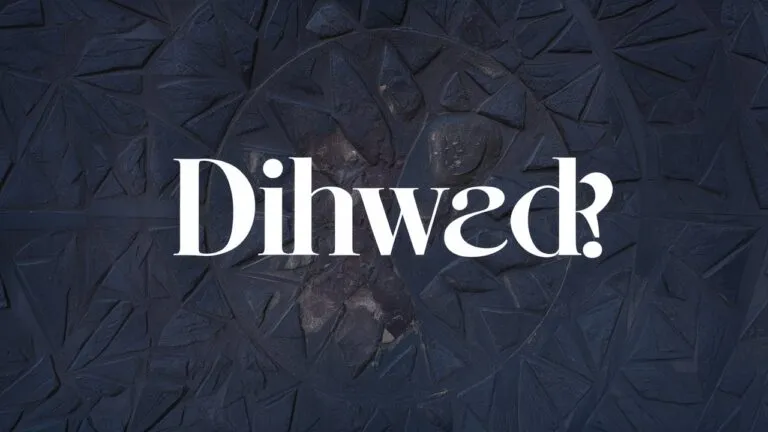Dihward is a name that carries weight and intrigue, echoing through time with stories waiting to be uncovered. But what lies behind this captivating moniker? From its early roots to its cultural resonance today, the journey of Dihward offers a glimpse into history’s tapestry. This exploration reveals not just a name, but an identity steeped in significance and meaning. Join us as we delve into the fascinating evolution of Dihward—an odyssey marked by notable figures, cultural ties, and modern perceptions that breathe life into this enduring legacy.
Early Origins of the Name
The name Dihward has intriguing roots that trace back to ancient cultures. Its earliest origins are believed to stem from a blend of linguistic influences across regions. Historians suggest it may derive from a combination of local dialects, indicating strength and resilience.
In various historical texts, references to individuals named Dihward can be found in connection with significant events. These early bearers often stood out for their leadership qualities or contributions to society.
Cultural ties also play a role in the evolution of the name. As communities merged and transformed, so too did the significance attached to Dihward. It became more than just a label; it represented identity and heritage for many families over generations.
Such origins provide an essential backdrop for understanding how Dihward has been perceived through time, shaping its legacy today.
Evolution of the Name
The name Dihward has undergone a fascinating transformation over the centuries. Initially, it emerged in ancient texts, often associated with noble lineages and distinguished families.
As languages evolved, so did its pronunciation and spelling. Variations appeared across regions, reflecting local dialects and cultural influences. Each iteration added layers of meaning to the name.
During historical migrations, Dihward traveled along with communities. This spread led to unique adaptations that resonated within different cultures.
In modern times, digital platforms have further diversified how people perceive Dihward. From social media handles to branding initiatives, the name now represents various identities.
These changes demonstrate not just linguistic evolution but also the shifting values tied to personal identity in society today. The journey of Dihward is a testament to resilience and adaptability through time.
Notable Figures with the Name Dihward
Throughout history, the name Dihward has been borne by several intriguing figures. Each one has left a distinct mark on their respective fields.
One notable individual is Dihward Alavi, a renowned scholar in Middle Eastern studies. His research on ancient texts has shed light on cultural exchanges in historical contexts.
Another prominent figure is Dihward Rahmani, an influential artist known for his captivating landscape paintings. His work explores themes of nature and tranquility, resonating with audiences around the globe.
In the realm of politics, Dihward Kahn made headlines as a reformist leader advocating for social change in his community. His efforts aimed at empowering marginalized voices have inspired many young activists today.
These individuals exemplify the diversity and impact associated with the name Dihward across various domains. Each story adds depth to its legacy while inspiring future generations to embrace their own unique paths.
Cultural and Religious Significance of Dihward
Dihward carries rich cultural and religious significance, reflecting deep historical roots. It is often associated with particular traditions that have been passed down through generations.
In various cultures, names like Dihward are linked to specific rituals and ceremonies. These practices celebrate identity and community ties, fostering a sense of belonging among individuals who share the name.
Religiously, Dihward resonates within certain spiritual contexts. Some believe it symbolizes strength and resilience. This connection adds an additional layer of meaning for those who identify with the name.
Artistic expressions also emerge from this heritage—songs, poetry, and folklore frequently highlight themes surrounding figures named Dihward. Such narratives not only honor their legacy but also serve as reminders of shared history and values in contemporary society.
How the Name is Perceived in Modern Society
In modern society, the name Dihward carries a unique charm. It evokes curiosity and often sparks conversations about its origins.
People may associate it with strength or resilience. The sound of the name feels assertive yet approachable. This duality makes it appealing in various social contexts.
Social media platforms have amplified the visibility of names like Dihward. Individuals proudly showcase their identity, blending tradition with contemporary culture.
Parents today consider Dihward as an option for their children, drawn to its rarity and distinctive quality. In a world filled with common names, Dihward stands out.
Moreover, cultural shifts emphasize individuality over conformity. As such, names that reflect personal heritage gain importance. Those named Dihward often find pride in sharing stories tied to their lineage or history.
This perception contributes to building a sense of community among those who bear the name across generations.
Conclusion: The Enduring Legacy of Dihward
Dihward is more than just a name; it’s a tapestry woven with history, culture, and significance. From its early origins to the notable figures who have carried it through the ages, Dihward represents resilience and identity. The cultural ties associated with this name are deep-rooted in various traditions and beliefs, showcasing how names can carry weight beyond mere identification.
In modern society, perceptions of Dihward continue to evolve. People see it as unique yet familiar—a bridge between past legacies and contemporary dynamics. As we navigate an ever-changing world, names like Dihward remind us of our shared stories and heritage.
The enduring legacy of Dihward lies in its ability to adapt while retaining its essence. It stands as a testament to the power of names—how they encapsulate history, embody cultures, and influence identities across generations.

